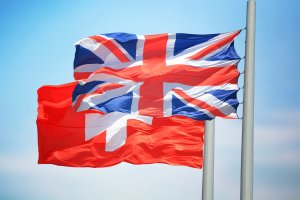- Commercial disputes

Longer Reads
UK Supreme Court rules Mozambique Tuna Bonds case can be tried in England
Head of Dispute Resolution Robin Henry comments on the UK Supreme Court’s ruling for the Mozambique Tuna Bonds case.
1 minute read
Published 21 September 2023
Key information
- Specialisms
- Dispute Resolution
- Services
- Commercial disputes
On 20 September 2023, the UK Supreme Court (“UKSC”) handed down a significant judgment in Republic of Mozambique v Privinvest Shipbuilding SAL (Holding) & Ors [2023] UKSC 32 (aka the “Tuna Bonds” case). The judgment concerns the question of whether claims brought in the English court by Mozambique against a number of defendants (the “Privinvest” companies) should be stayed in favour of arbitration in Switzerland under section 9 of the Arbitration Act 1996 (which gives effect to Article II(3) of the New York Convention).
The background is a US$2 billion claim in which it is alleged that bribes were paid to facilitate Mozambique’s entry into guarantees of bank financing of supply contracts for the development of Mozambique’s tuna fishing industry and gas resources.
The UKSC had to decide whether Mozambique’s proceedings under the English law guarantees should be stayed in favour of arbitration dictated by the Swiss law contracts. This involved a consideration of whether, under s.9, Mozambique’s claims were “matters” which the parties would raise in the court proceedings and whether those matters fell within the scope of the arbitration agreements between the parties.
The UKSC held that none of Mozambique’s claims were “matters” which fell within the scope of the arbitration agreements. The Court found that “a “matter” was a substantial issue that is legally relevant to a claim or a defence, or foreseeable defence, in the legal proceedings”. The Court found that Mozambique, in seeking damages from entering into the guarantees, was asserting that it did not get value for the obligations it had entered into and in considering its claims of bribery and fraud, it would not be necessary to examine the validity of the supply contracts. A defence that the contracts were valid would not affect the defendants’ liability and so would not be a “matter” for the purposes of s.9 of the Arbitration Act.
The only partial defence which would arise as a result of the validity of the contracts affected the quantification of Mozambique’s claim. However, the Court held that s.9 had to be applied with common sense. Regard had to be given to the fact that rational businesspeople were likely to intend that any disputes arising out of their contractual relationship should be decided by the same tribunal. Since the arbitration agreements clearly did not extend to the issue of the defendants’ liability for Mozambique’s allegations, rational businesspeople would not seek to have the issue of quantification alone sent to arbitration.
The judgment is significant not only for clarifying s.9 under English law but also for other common law signatories to the New York Convention because, following a review of several jurisdictions’ case law, the Court found a “general international consensus” on the determination of “matters” which must be referred to arbitration”.
For more information, visit our Commercial Litigation page.
Related content
Longer Reads
UK Supreme Court rules Mozambique Tuna Bonds case can be tried in England
Head of Dispute Resolution Robin Henry comments on the UK Supreme Court’s ruling for the Mozambique Tuna Bonds case.
Published 21 September 2023
Associated sectors / services
Authors
On 20 September 2023, the UK Supreme Court (“UKSC”) handed down a significant judgment in Republic of Mozambique v Privinvest Shipbuilding SAL (Holding) & Ors [2023] UKSC 32 (aka the “Tuna Bonds” case). The judgment concerns the question of whether claims brought in the English court by Mozambique against a number of defendants (the “Privinvest” companies) should be stayed in favour of arbitration in Switzerland under section 9 of the Arbitration Act 1996 (which gives effect to Article II(3) of the New York Convention).
The background is a US$2 billion claim in which it is alleged that bribes were paid to facilitate Mozambique’s entry into guarantees of bank financing of supply contracts for the development of Mozambique’s tuna fishing industry and gas resources.
The UKSC had to decide whether Mozambique’s proceedings under the English law guarantees should be stayed in favour of arbitration dictated by the Swiss law contracts. This involved a consideration of whether, under s.9, Mozambique’s claims were “matters” which the parties would raise in the court proceedings and whether those matters fell within the scope of the arbitration agreements between the parties.
The UKSC held that none of Mozambique’s claims were “matters” which fell within the scope of the arbitration agreements. The Court found that “a “matter” was a substantial issue that is legally relevant to a claim or a defence, or foreseeable defence, in the legal proceedings”. The Court found that Mozambique, in seeking damages from entering into the guarantees, was asserting that it did not get value for the obligations it had entered into and in considering its claims of bribery and fraud, it would not be necessary to examine the validity of the supply contracts. A defence that the contracts were valid would not affect the defendants’ liability and so would not be a “matter” for the purposes of s.9 of the Arbitration Act.
The only partial defence which would arise as a result of the validity of the contracts affected the quantification of Mozambique’s claim. However, the Court held that s.9 had to be applied with common sense. Regard had to be given to the fact that rational businesspeople were likely to intend that any disputes arising out of their contractual relationship should be decided by the same tribunal. Since the arbitration agreements clearly did not extend to the issue of the defendants’ liability for Mozambique’s allegations, rational businesspeople would not seek to have the issue of quantification alone sent to arbitration.
The judgment is significant not only for clarifying s.9 under English law but also for other common law signatories to the New York Convention because, following a review of several jurisdictions’ case law, the Court found a “general international consensus” on the determination of “matters” which must be referred to arbitration”.
For more information, visit our Commercial Litigation page.
Associated sectors / services
- Commercial disputes
Authors
Need some more information? Make an enquiry below.
Subscribe
Please add your details and your areas of interest below
Article contributor
Robin
HenryPartner - Head of Dispute Resolution Services
Specialising in Banking & financial disputes, Commercial disputes, Corporate recovery, restructuring & insolvency, Financial regulatory, Financial Services and Personal insolvency
Enjoy reading our articles? why not subscribe to notifications so you’ll never miss one?
Subscribe to our articlesMessage us on WhatsApp (calling not available)
Please note that Collyer Bristow provides this service during office hours for general information and enquiries only and that no legal or other professional advice will be provided over the WhatsApp platform. Please also note that if you choose to use this platform your personal data is likely to be processed outside the UK and EEA, including in the US. Appropriate legal or other professional opinion should be taken before taking or omitting to take any action in respect of any specific problem. Collyer Bristow LLP accepts no liability for any loss or damage which may arise from reliance on information provided. All information will be deleted immediately upon completion of a conversation.
Close



















































